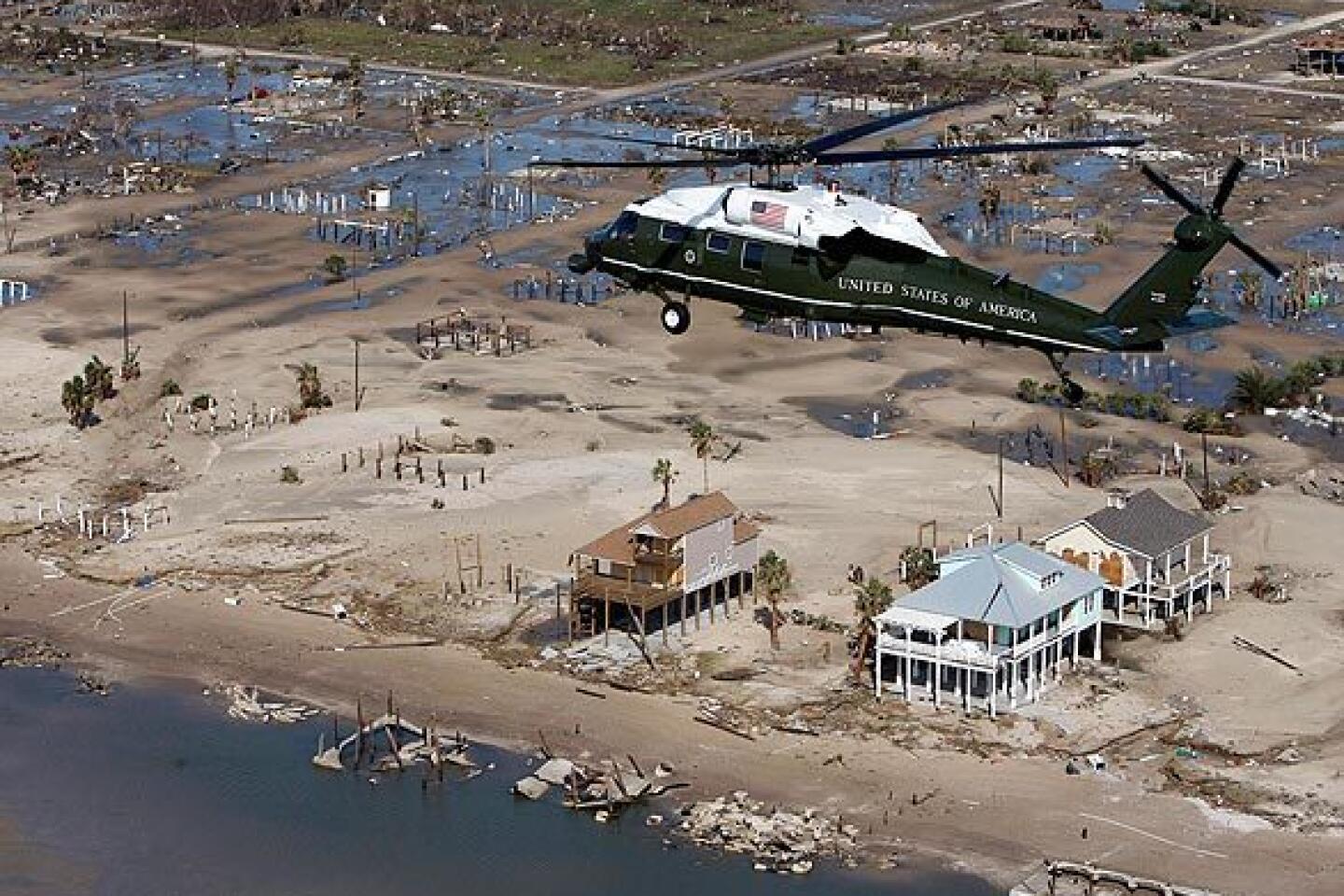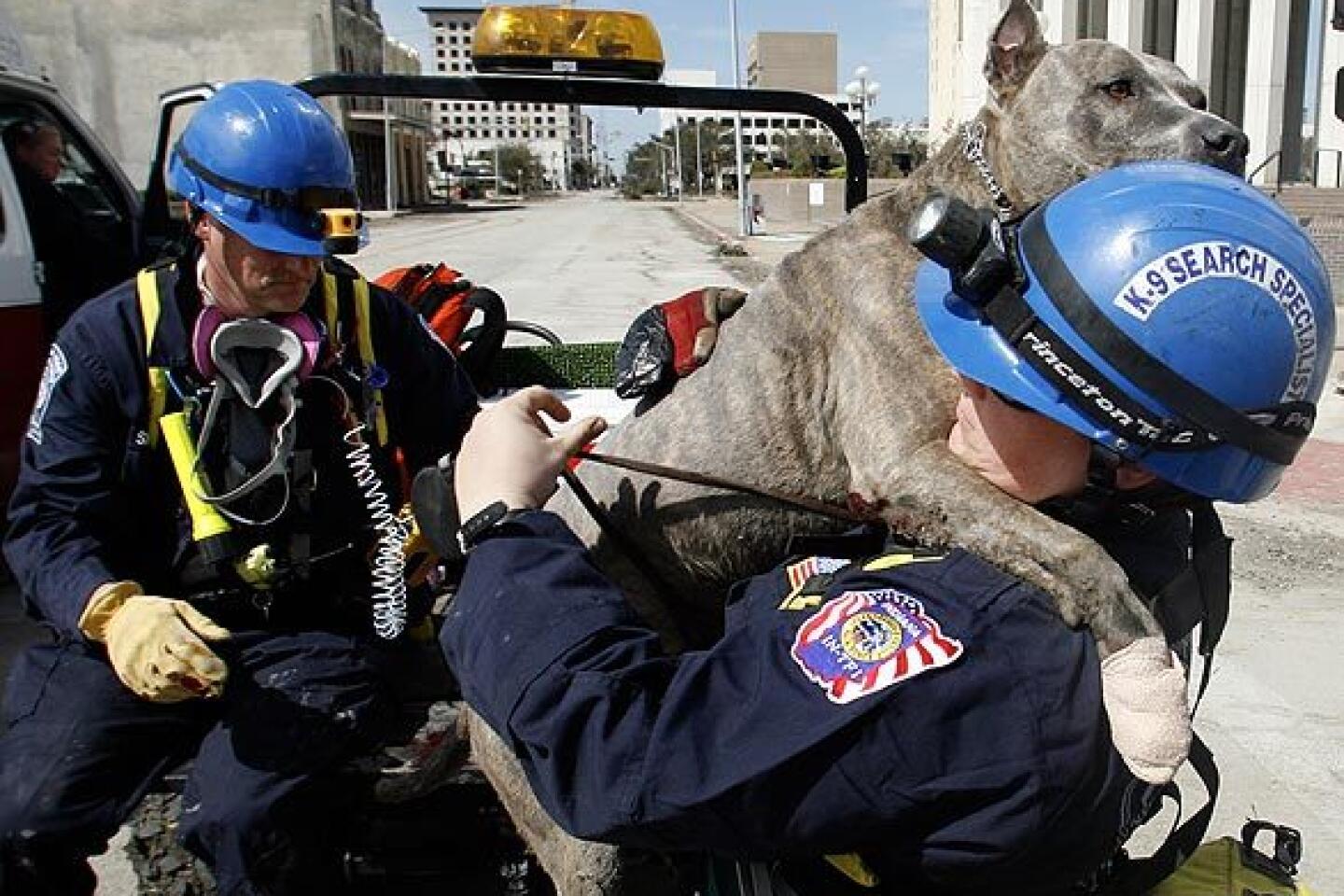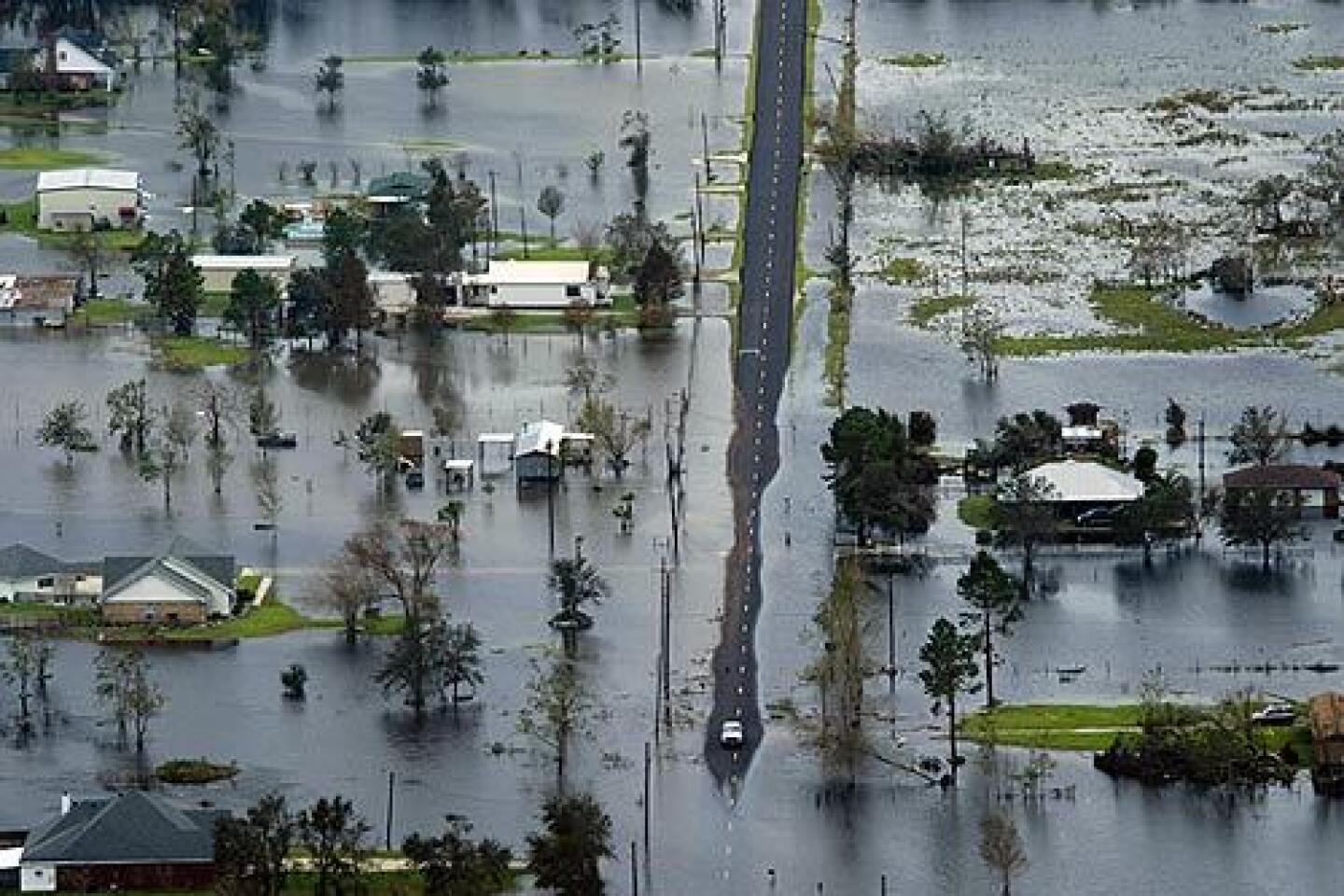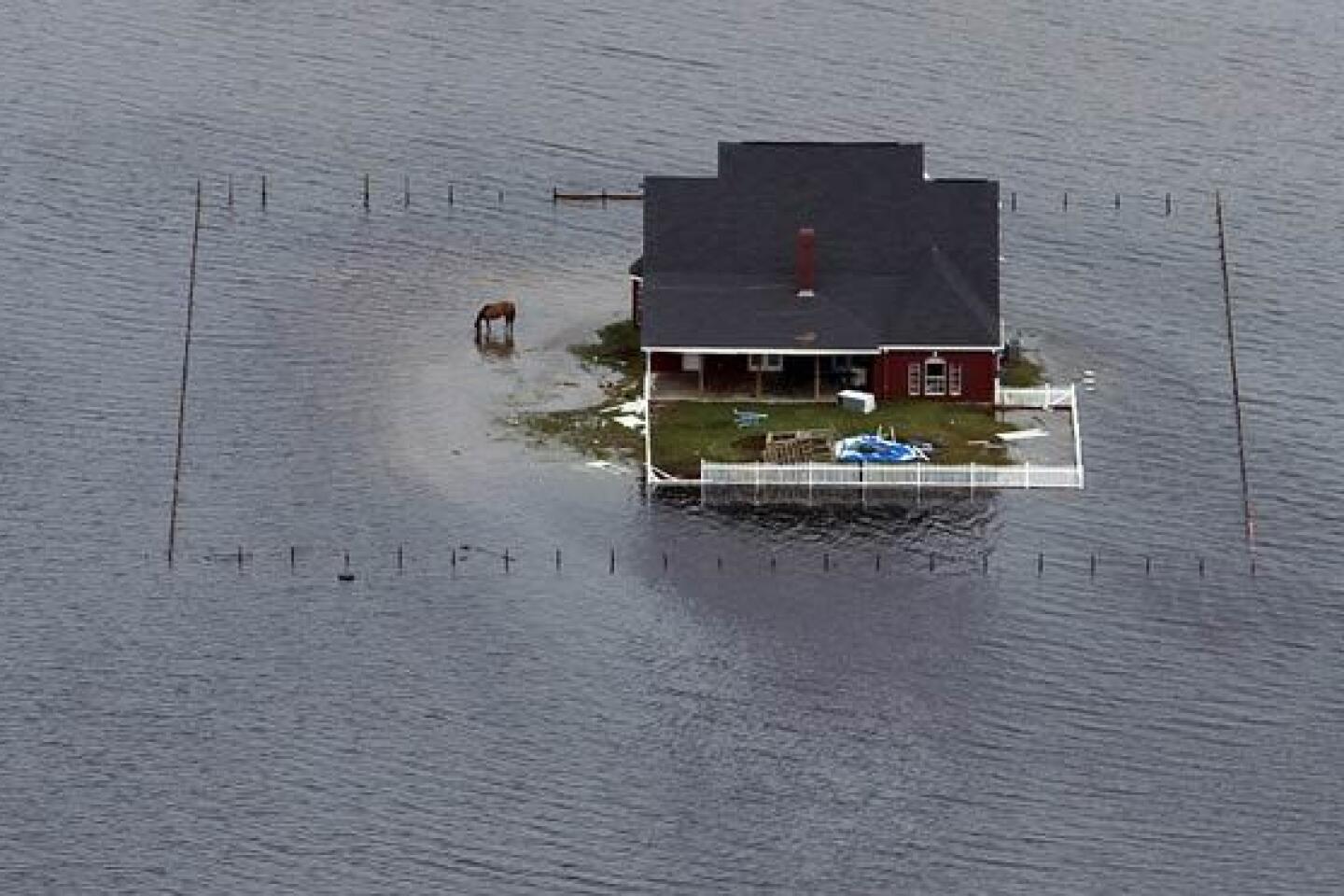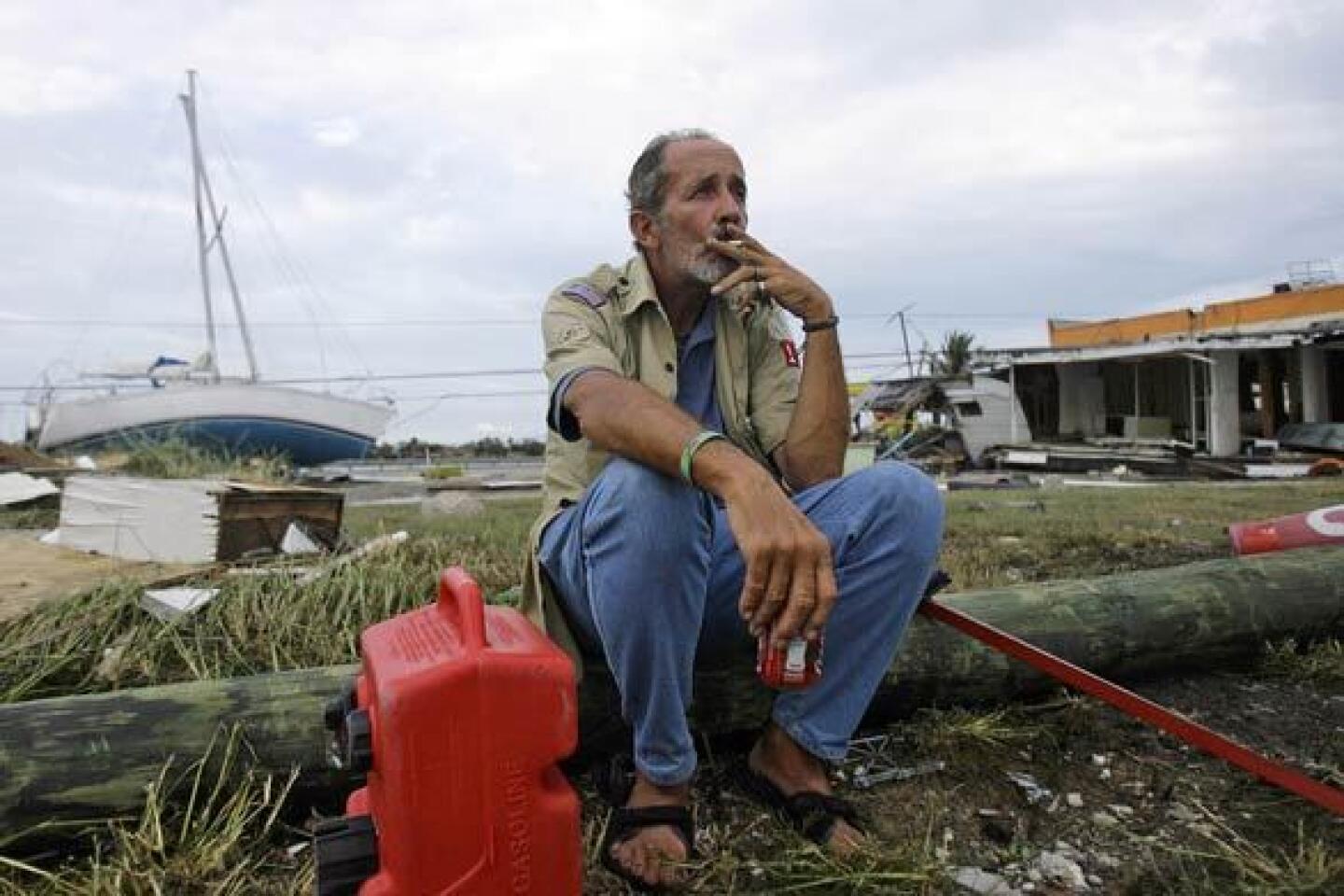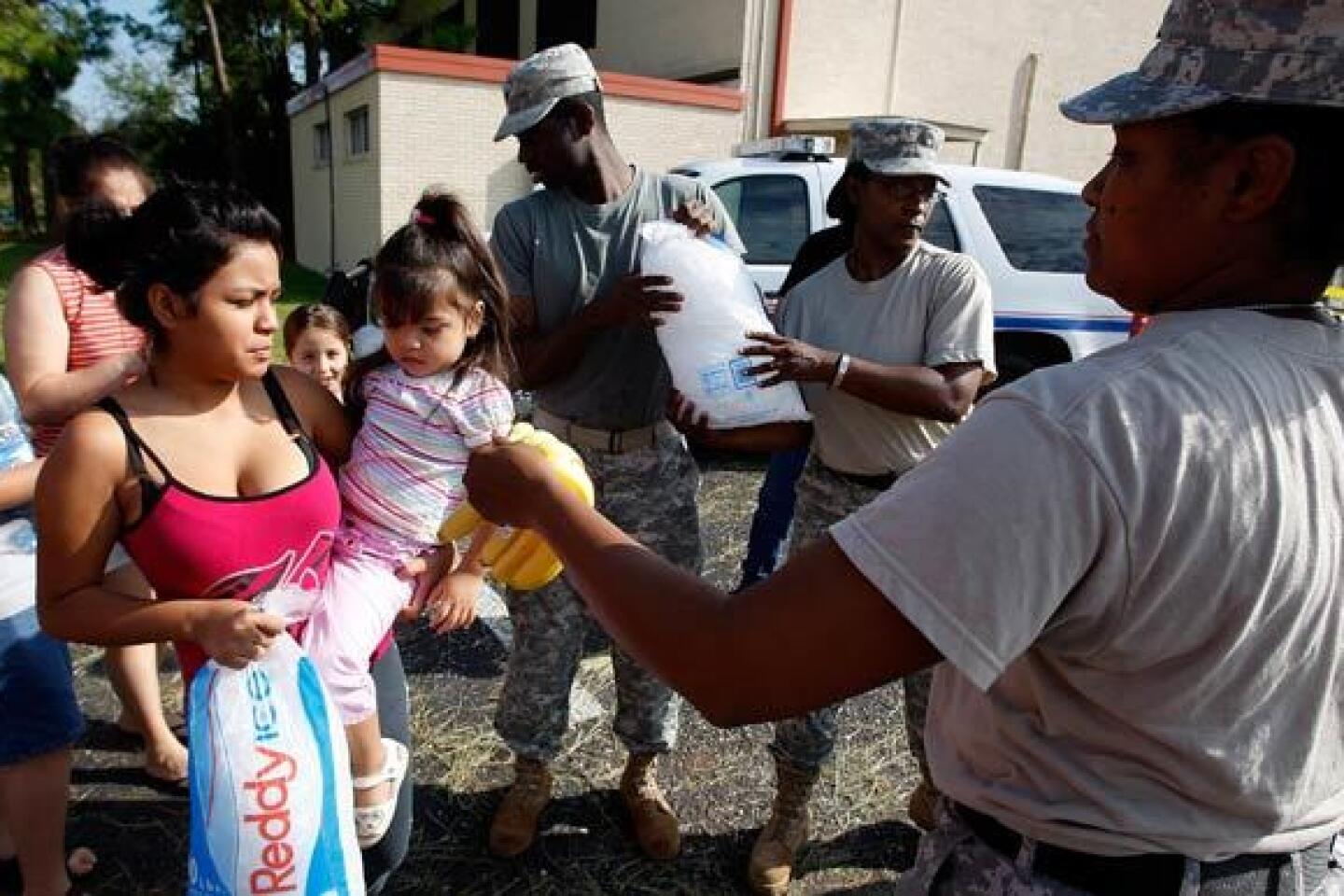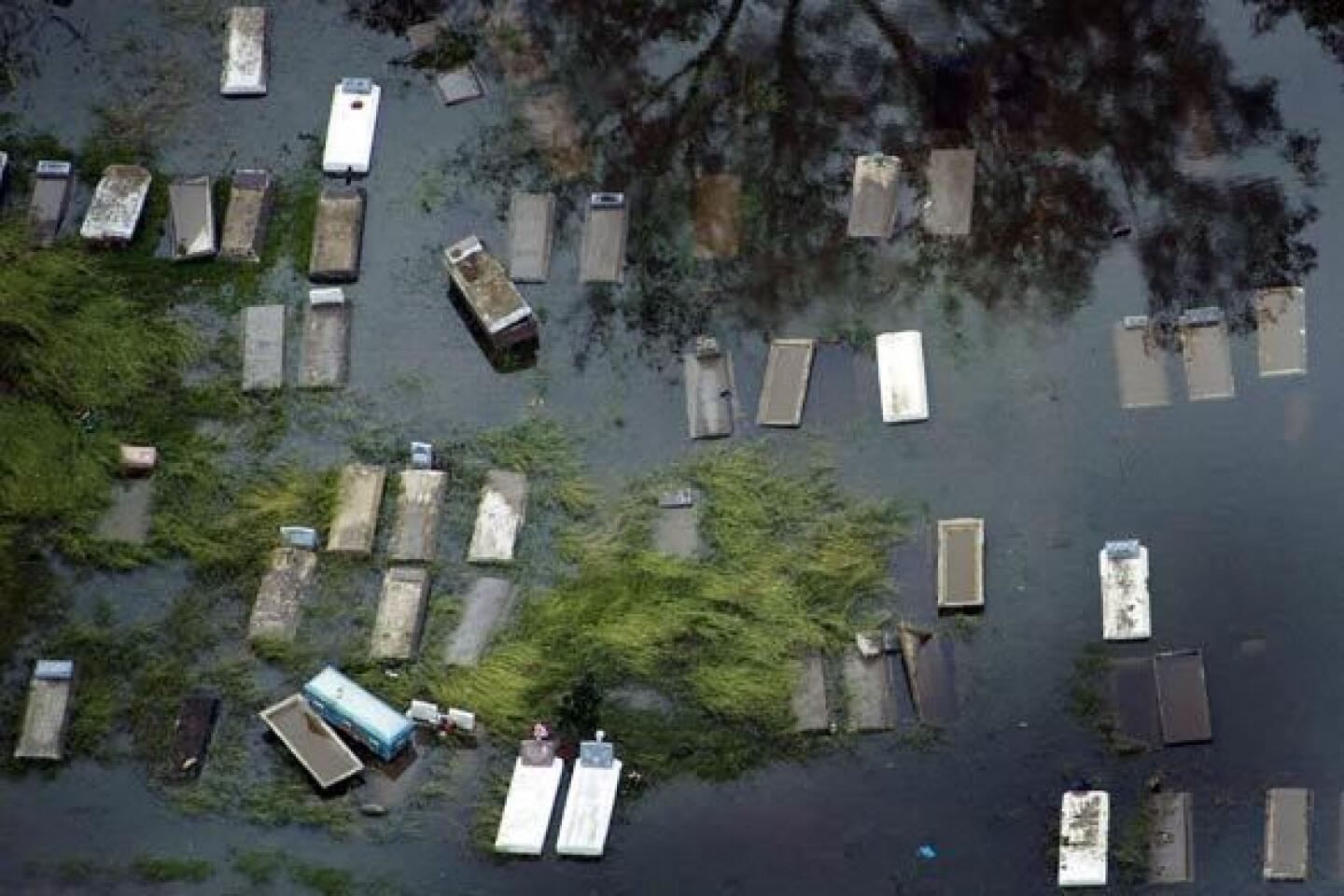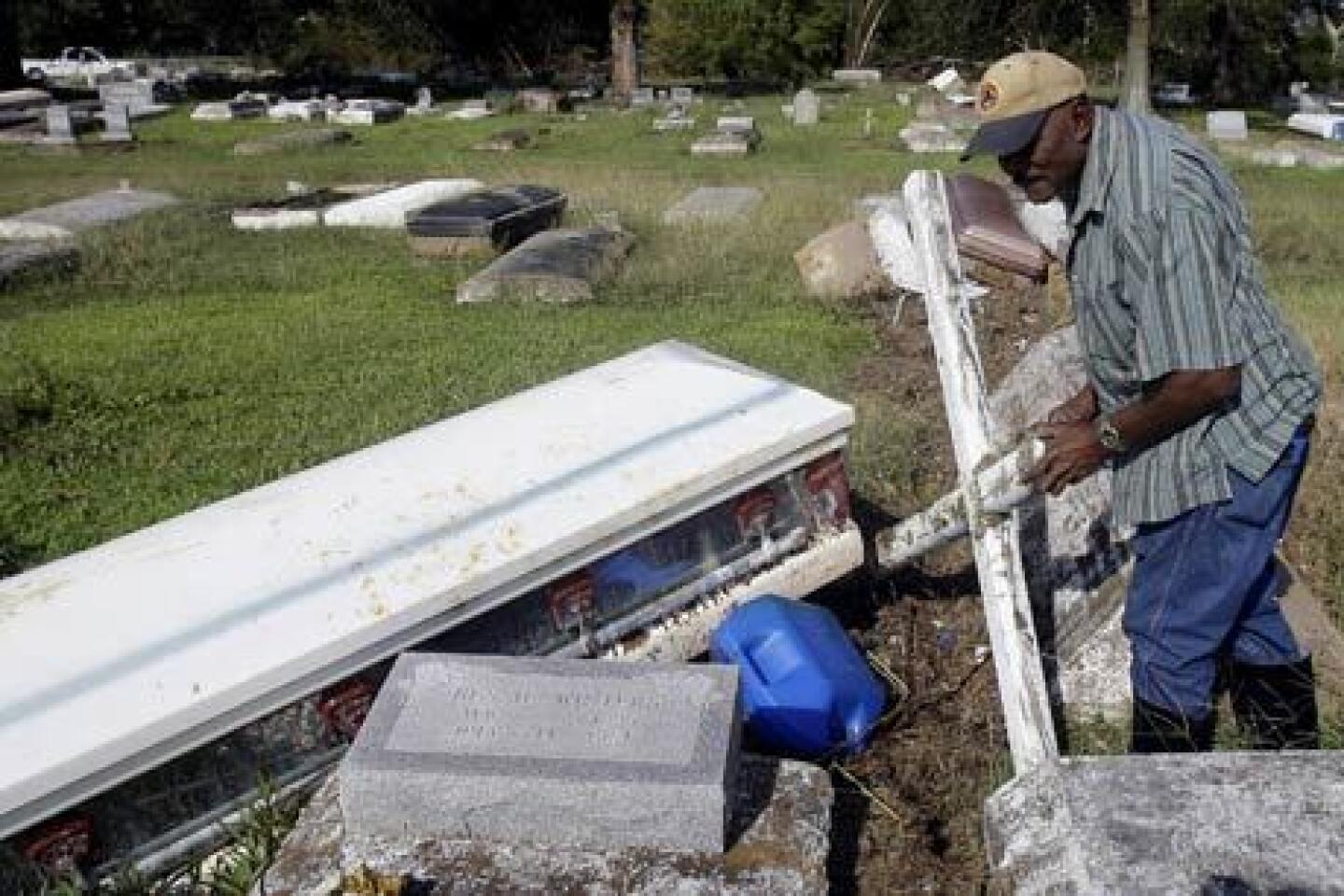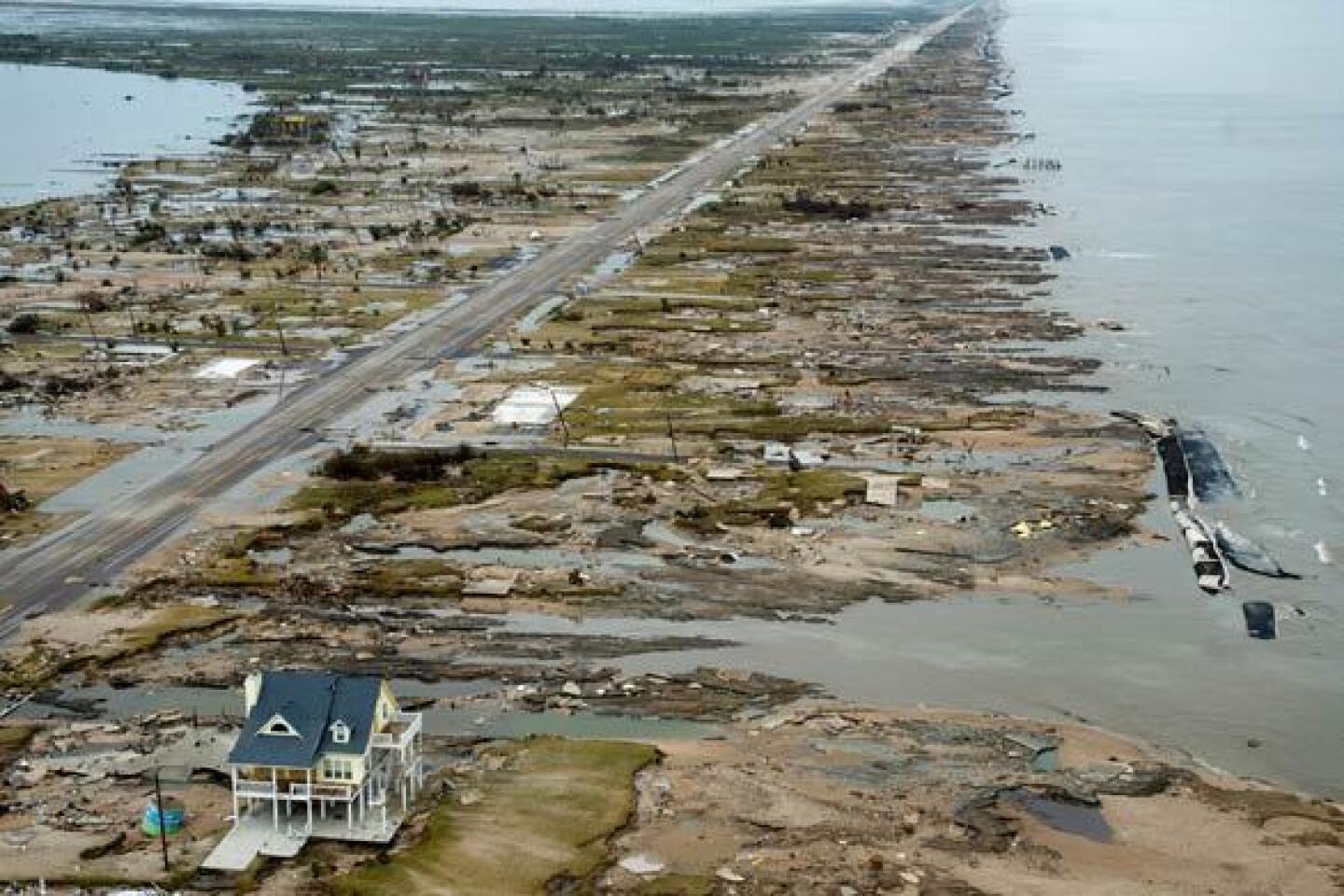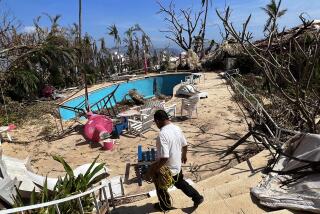Hurricane Ike to affect U.S. economy, but not like Katrina
The economic good news about Hurricane Ike: It was no Katrina.
Unlike the 2005 storm that flooded New Orleans, Ike has had a limited effect on refineries and energy exploration platforms in the Gulf of Mexico and isn’t approaching Katrina’s $40 billion in damage.
The result is that the effect on the national economy is expected to be sharp but limited, analysts said.
“It’s going to be felt by the U.S. economy -- not to extent that Katrina was,” said Brad Ewing, an economist at Texas Tech University in Lubbock who studies the financial effect of hurricanes and tornadoes.
Only rough estimates on the losses from Ike were available from risk management companies, but their guesses ranged from $8 billion to $18 billion.
“An important phrase you’ll hear is: ‘Less than Katrina, bigger than others,’ ” said Ed Friedman, an analyst at Moody’s Economy.com.
Ike was not powerful enough to overwhelm the main industrial infrastructure of the region, which had been toughened up after it was wracked by devastating storms in 2005.
“The infrastructure is more resilient now,” said Jim Burkhard of Cambridge Energy Research Associates Inc. “People, governments, companies are more prepared now than they were a couple of years ago.”
The Port of Houston, the second busiest by tonnage in the country, was shut down Monday because of the storm. The port is a major entry point for products from Europe and Latin America. But officials said the port is expected open later this week.
About 20% of U.S. refineries were in Ike’s path, and they closed as a precautionary measure last week, sending gasoline prices skyrocketing to more than $5 a gallon in some areas. However, damage to refineries and exploration platforms was limited, and oil prices are falling because consumers’ nervousness over the global economic slowdown has reduced demand.
Ike “has had a big impact, but that’s been offset by the financial storm the U.S. is facing,” Burkhard said.
Downtown Houston, home to many of the nation’s largest energy companies, never lost power because its electrical lines are underground.
Windows in several corporate high-rises were shattered by the storm, but Richard Huebner, president of the Houston Minority Business Council, said he felt cheered as he toured the area Sunday.
“We were not hit as hard as we might have been,” he said. “There are relatively few towers affected in any significant way.”
Huebner said many industries made extensive backups of key documents and systems so they could function even if their headquarters were destroyed. His organization backed up its data on a set of laptops and is ready to return to business, even though its offices are flooded. “We just need to find a place with electricity and a phone line,” he said.
The most widespread devastation was in coastal resort towns like Galveston, where analysts expect real estate prices will sag for two to three years and prices for building supplies will increase.
But Bruce Kellison, associate director of the Bureau of Business Research at the University of Texas at Austin, said the effect would largely be local. “Galveston is not the heart of the state of Texas’ economy,” he said. Ike “is really not going to bring the state of Texas’ economy to its knees by any means.”
nicholas.riccardi@
latimes.com
Times Staff Writer P.J. Huffstutter in Galveston contributed to this report.
More to Read
Start your day right
Sign up for Essential California for news, features and recommendations from the L.A. Times and beyond in your inbox six days a week.
You may occasionally receive promotional content from the Los Angeles Times.
